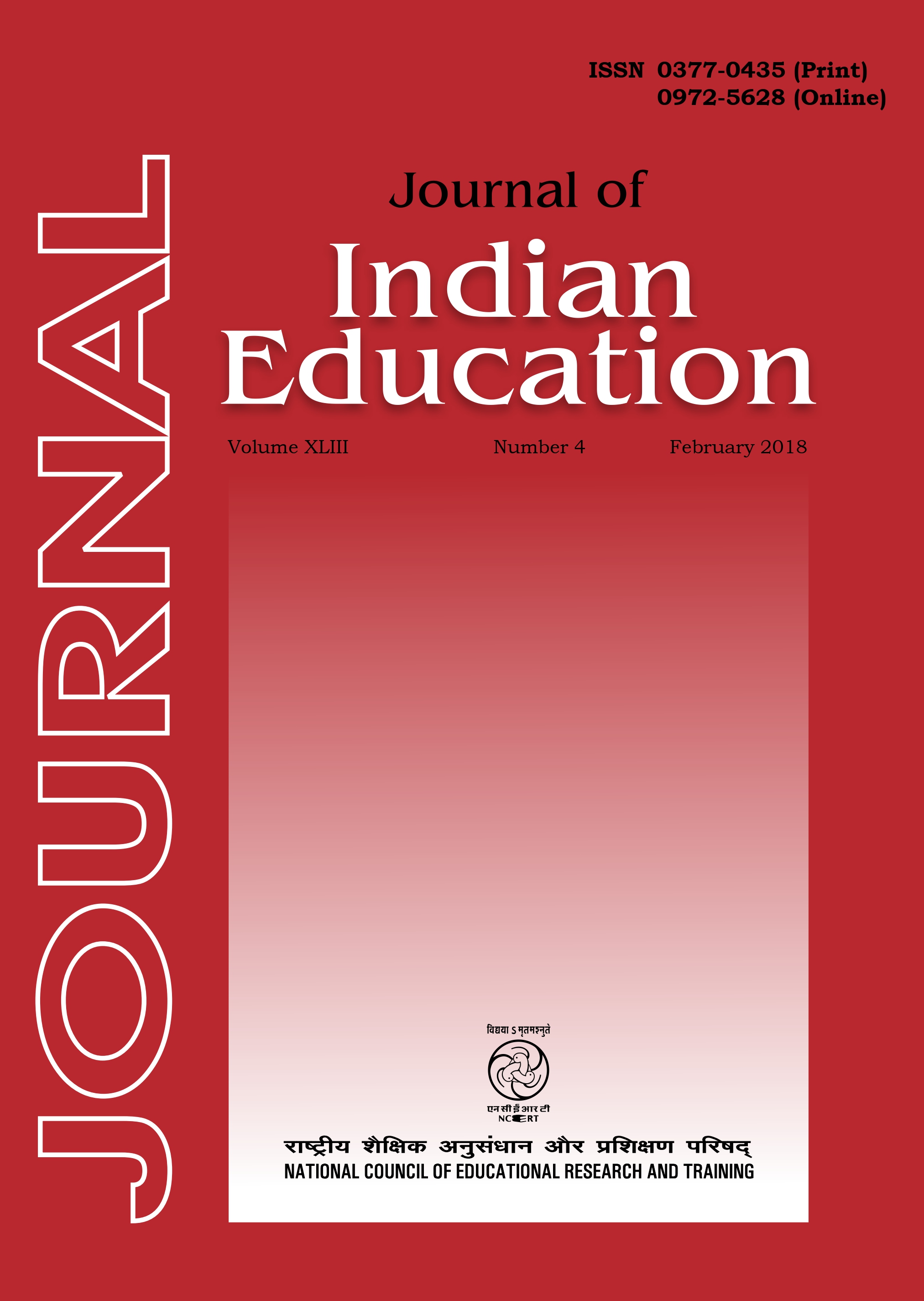Published 2018-02-28
Keywords
- Elementry Education,
- School Education
How to Cite
Abstract
The present study explored the impact of social writing on the participation of children in literacy activities in the classroom. Conducted on Class IV students from a rural government school in Kerala, this study adopted qualitative methods for data collection and analysis. Vygotsky’s theoretical concepts, ‘zone of proximal development’ and ‘collaborative learning’ were used to design and experiment a new pedagogic approach called the ‘social writing programme’. The findings of the study support a shift from the ‘traditional, mechanical classroom writing activities’ to a social writing activity, as it offers a space to children who can use writing as part of their social life. Participation in this social writing programme either individually, allowed the child to select his/her own text for writing, write at his/her own pace, write in small groups, where he/she could use writing as a tool for engaging with the self and negotiate her/his positions as well as identity. She/he is found to be benefitting from the reifications of his/her identity to write and what she/he finally writes. The social writing programme created a new set of semiotic and personal resources that motivated students more than the traditional writing activities.

